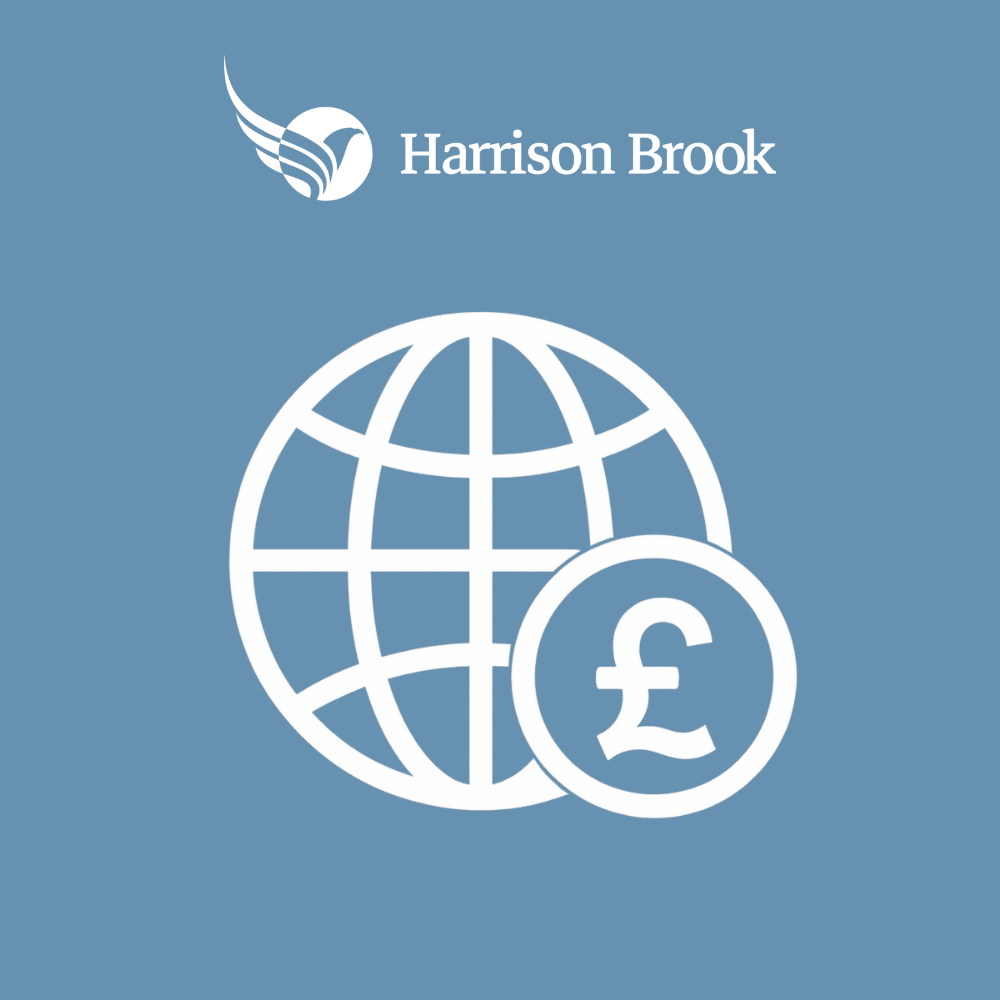
As global mobility continues to rise, more British expats are looking for ways to keep control of their retirement savings while living overseas. One solution has gained significant traction over the past few years. In 2026, the International SIPP has become one of the most popular pension options for UK nationals abroad. Its combination of flexibility, global accessibility and cost efficiency is encouraging more expats to transfer their pensions into a structure designed specifically for international living.
With more people retiring overseas, the topic of pensions abroad is becoming increasingly important, as expats consider the process and regulations involved in managing or transferring their pensions abroad.
This article explains why the shift is happening, what benefits an International SIPP brings and the key considerations when moving your pension from the UK to an international solution.
The Growing Trend of UK Expats Consolidating Pensions Overseas
More retirees are leaving the UK each year to enjoy a lower cost of living, better weather or simply a change of pace. With this move comes new financial considerations. Managing a UK pension from abroad is often more complex than anticipated. Expats face challenges such as currency fluctuations, limited access to providers and tax considerations that differ from those living in the UK. As a non uk resident, there are specific restrictions and eligibility criteria for contributing to UK pensions. Additionally, uk tax relief on pension contributions is typically limited for those living abroad, so expats should be aware of these limitations when managing their pensions.
In 2026, the demand for flexible cross border pension solutions has grown rapidly. An International SIPP provides exactly that. Expats can consolidate several pensions, manage investment strategies tailored to their residency and access retirement income without the restrictions that often come with traditional UK schemes.
What Makes the International SIPP So Attractive in 2026?
1. Global Flexibility and Control
An International SIPP offers far more freedom than many UK-based pensions. Expats can choose from a diverse range of global investments, including ETFs, mutual funds, shares, bonds, commercial property, and alternative assets. This diversification appeals to retirees who want to align their portfolio with international markets rather than relying solely on UK-centric funds.
2. Transparent and Competitive Fees
Many older UK pensions still operate with opaque charging structures. International SIPPs, by contrast, have become far more transparent in 2026. Expats can clearly see the cost of administration, platform fees and advisory support. For those who have transferred from traditional personal pensions or workplace schemes, the difference in value can be significant.
3. Ease of Access for Those Living Abroad
A key reason expats move their pensions is to maintain easy access to their funds. Many UK providers are not set up to support non-UK residents. Expats who live abroad often require specialised guidance to navigate cross-border pension regulations. This can lead to delays, communication challenges and even restrictions on withdrawals. International SIPPs are designed specifically for expats, making administration smoother and income drawdown far more straightforward.
4. Suitable for Long Term Residency Overseas
If you do not plan to return to the UK, an International SIPP helps align your pension strategy with your long-term residency. Your status as a tax resident in your new country will affect how your pension withdrawals are taxed and reported. This includes better currency management, tax-efficient withdrawal planning and access to global investment markets.
5. Consolidation of Multiple UK Pensions
Many expats hold several pensions accumulated over their working life. Consolidating them into a single International SIPP is straightforward and gives a clearer overview of your total retirement savings. Bringing together multiple pension funds into one International SIPP can simplify management and improve oversight. This consolidation helps create a more streamlined retirement fund, making financial planning easier. This simplification helps reduce costs, minimise paperwork and improve overall planning.
6. No Need for a QROPS in Many Cases
While QROPS remain relevant for a small number of expats, especially those in specific jurisdictions, the International SIPP has become the preferred option for most British nationals abroad. QROPS stands for ‘qualifying recognised overseas pension’, which refers to certain ‘recognised overseas pension schemes’ approved by HMRC for tax-efficient pension transfers. It offers flexibility without the higher fees and limitations that can come with overseas pension schemes.
Why Retired British Expats Are Choosing an International SIPP for Drawdown
Retirees living abroad increasingly rely on flexible access to their pension income. The International SIPP supports full flexi-access drawdown, allowing individuals to take income as and when they need it. International SIPPs also allow expats to access up to 25% of their pension as tax free cash, depending on their country of residence. This tax free withdrawal is often referred to as a tax free lump sum, but may be subject to local tax rules. This is particularly useful for expats who want to manage their tax exposure or withdraw income in line with fluctuations in exchange rates.
Additionally, many expats want to keep their pension invested while drawing income. International SIPPs allow this, ensuring long-term growth potential and maintaining a globally diversified portfolio throughout retirement. Flexible drawdown options help maximise pension benefits and allow for strategic lump sum withdrawals as part of retirement planning.
Key Considerations Before Moving to an International SIPP
Although the International SIPP offers many advantages, transferring is not appropriate for everyone.
Before making any decisions, comprehensive financial planning is essential. You should seek advice from a specialist to ensure your pension transfer aligns with your long-term goals and personal circumstances. For certain types of pension transfers, especially those involving registered pension schemes and UK registered pension schemes, regulated financial advice is required by law. Transferring pensions can have significant implications for inheritance tax, UK inheritance tax, and the death benefit allowance, particularly in light of recent legislative changes. The lifetime allowance and overseas transfer allowance also affect how much can be transferred tax-free, so it is important to understand these thresholds. Additionally, the UK Autumn Budget may introduce changes that impact pension transfers and tax treatment, so staying informed about the latest updates is crucial.
It is important to consider:
Your long term residency plans
If you plan to return to the UK, your pension strategy may differ from someone who intends to retire abroad permanently.
The structure and benefits of your existing pension
Some DB schemes or pensions with valuable guarantees may not be suitable for transfer.
Currency management
Deciding whether to hold investments or draw income in your local currency requires careful planning.
Tax rules in your country of residence
Each country has different rules on pension income. Speaking with an adviser experienced in international tax is essential.
Understanding the Pension Transfer Process
Transferring your UK pension to an international or overseas pension scheme is a significant financial decision, especially for British expats living abroad. The process involves moving your retirement funds from a UK registered pension scheme, such as a self invested personal pension (SIPP) or workplace pension, into a new structure that better suits your life overseas. While the potential benefits include greater investment freedom, improved tax efficiency, and more flexible access to your retirement income, the process can be complex and requires careful planning.
One of the first steps is to assess your personal circumstances, including your residency status and relevant UK earnings. Your country of residence will have its own local tax treatment for pension income, and understanding these rules is crucial to avoid unexpected tax bills. Double taxation agreements between the UK and your new home country can help prevent your pension income from being taxed twice, but the details can vary widely, so it’s important to review these agreements as part of your planning.
Currency risk is another key consideration. As a UK expat, your retirement funds may be held in pounds sterling, but your living expenses are likely in a different currency. Fluctuations in exchange rates can impact the value of your pension income, so it’s wise to explore options for managing currency risk, such as holding investments in your local currency or using international SIPPs that offer multi-currency flexibility.
There are several pension transfer options available, including transferring to another UK registered pension scheme, an overseas scheme, or an international SIPP. Each type of pension scheme comes with its own rules, tax treatment, and investment options. For example, a self invested personal pension (SIPP) can provide greater investment flexibility, while some overseas pension schemes may offer specific tax advantages depending on your country of residence.
Recent changes to UK tax laws, such as the introduction of the overseas transfer charge and updates to the treatment of transfers to the European Economic Area, have made it even more important to stay informed. These changes can affect the tax efficiency of your pension transfer and may influence which pension providers and schemes are most suitable for your needs.
Given the complexity of cross border pension transfers, seeking professional advice from a regulated financial adviser is essential. An experienced adviser can help you navigate the pension transfer process, ensure compliance with UK tax obligations, and optimise your retirement savings strategy. They can also assist with paperwork, help you understand the implications of taking pension lump sums, and guide you in selecting a reputable pension provider with strong UK regulatory protection.
Ultimately, a successful pension transfer is about more than just moving your funds, it’s about securing your financial future and enjoying peace of mind while living abroad. By understanding the process, managing currency risks, and working with trusted professionals, you can make the most of your retirement funds and enjoy a flexible, tax-efficient retirement income wherever you choose to live.
Why the International SIPP Is the Preferred Choice in 2026
As more people seek mobility and a retirement lifestyle beyond the UK, the need for globally oriented financial solutions has intensified. The International SIPP has evolved significantly, becoming more accessible, more transparent and better suited to expatriate life. International SIPPs are a type of self invested personal pensions, offering greater flexibility and investment control for expats.
For British expats retiring in Europe, the Middle East, Asia or beyond, it offers a clear route to maintaining control of their pension, aligning investments with financial goals and adapting to international tax requirements. These advantages explain the rising number of transfers anticipated throughout 2026.
FAQs – Why More Expats Are Moving Their Pensions Into an International SIPP in 2026
What are the benefits of an International SIPP?
It offers global investment access, transparent fees, flexible drawdown, pension consolidation and full support for non-UK residents.
Can I keep my UK pension if I move abroad?
Yes. However, many expats choose an International SIPP for easier management and better access while overseas.
Is an International SIPP safe?
Yes. It is regulated by the UK’s Financial Conduct Authority. Your investments remain held in a secure trustee structure.
Can I draw my pension while living abroad?
Yes. An International SIPP supports flexi-access drawdown for expats in most countries.
Do I need a QROPS?
Most expats do not. An International SIPP is often more suitable unless you live in a jurisdiction where QROPS provides a specific tax advantage.
Ready to Explore Your International SIPP Options?
If you are living abroad and want more control, flexibility and clarity over your UK pension, an International SIPP may be the right solution. At Harrison Brook, we specialise in helping expats structure their pensions efficiently and transparently, wherever they are in the world.
Speak with a qualified adviser today to understand your options and secure a retirement plan built around your life abroad.



